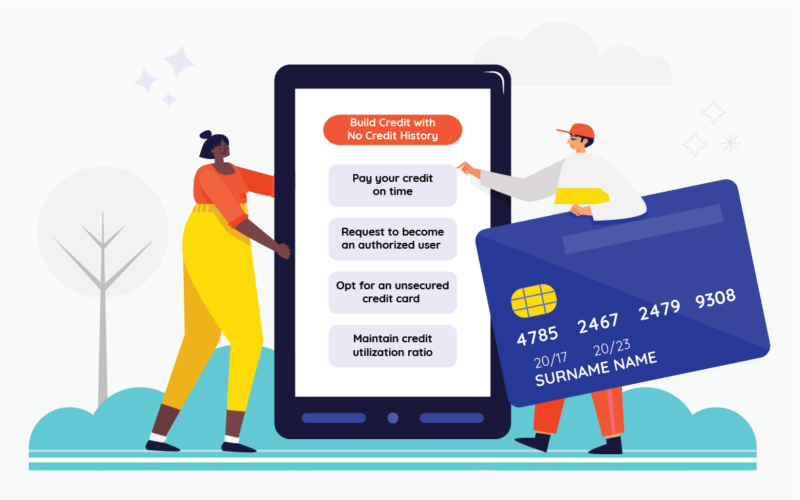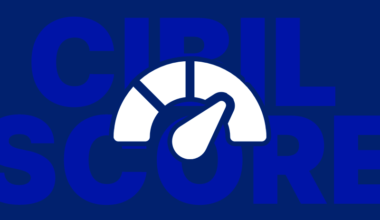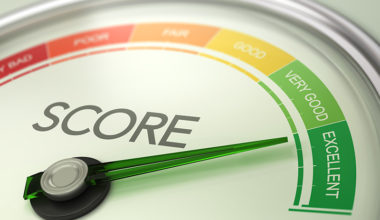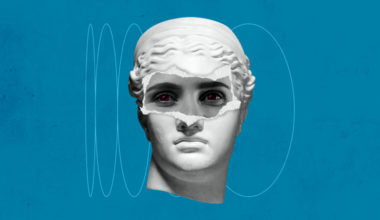Are you looking to purchase a new home, car, or secure a loan? Your credit report and score play a crucial role in these financial decisions, as lenders use this information to determine your creditworthiness. But what if you’ve never used credit before? Don’t worry, building a credit history is easier than you think and can greatly benefit you in the long run. Read on to discover some simple steps you can take to start building your credit history today.
How to Build Credit with No Credit History?
Apply for a Credit Card
To begin establishing a credit history, consider applying for a credit card, which is a convenient and easy way to build and improve your credit score. There are two types of credit cards to consider: secured and unsecured.
Secured credit cards
Secured credit cards are issued by credit card companies and banks in exchange for collateral, typically a cash deposit. These cards are ideal for borrowers with little or no credit history. By using a secured credit card responsibly and making timely payments, you can demonstrate your creditworthiness and improve your credit score. You can easily obtain a secured credit card by providing a fixed deposit or using your savings account as collateral at a bank.
Unsecured credit cards
Unsecured credit cards do not require any security deposit to obtain. These cards offer better perks and benefits compared to secured credit cards. However, they may require some credit history to qualify. Depending on your income and the policies of the issuing bank, you may be able to obtain an unsecured credit card with a low credit limit. Once approved, you will be given a credit limit to use for purchases, which can be paid back in full or in installments during the next billing cycle.
When applying for a credit card, it’s essential to compare different options and choose one that suits your needs. Look for cards with favorable terms, such as low fees and interest rates. Remember that responsible credit card usage is key to building and maintaining a healthy credit history. Make timely payments, keep your credit utilization low, and avoid carrying high balances on your credit card.
Use Your Credit Card Regularly
Establishing and maintaining a positive credit history requires consistent effort, and using your credit card regularly plays a vital role in this process. Here are key points to consider:
- Make regular purchases: To build credit, make regular purchases using your credit card. This can include both in-person and online transactions. By actively using your credit card, you demonstrate to lenders that you can responsibly manage credit.
- Keep your card active: In addition to making purchases, engage in other transactions that keep your credit card active. This can include paying bills, subscribing to services, or setting up automatic payments. By keeping your credit card active, you ensure a continuous flow of positive credit information.
- Responsible usage: When using your credit card, it’s crucial to exercise responsible financial behavior. This means staying within your credit limit, avoiding excessive debt, and making payments on time. Responsible credit card usage showcases your reliability and financial discipline to lenders.
- Timely payments: Paying your credit card bills on time is essential for maintaining a healthy credit score. Late payments can negatively impact your credit history and lower your credit score. Set up reminders or automatic payments to ensure you never miss a payment deadline.
- Keep balances low: To maximize the benefits of your credit card usage, aim to keep your balances low. High credit utilization (the ratio of your credit card balance to the credit limit) can negatively affect your credit score. Strive to keep your utilization rate below 30% to demonstrate responsible credit management.
Remember, building a positive credit history is a long-term process that requires consistent effort. By using your credit card regularly, making timely payments, and keeping your balances low, you establish a track record of responsible credit usage. This, in turn, strengthens your creditworthiness, increases your chances of loan approval, and opens doors to better financial opportunities in the future.
If you don’t have a credit card of your own, one effective way to build credit is by becoming an authorized user on a family member’s credit card. Here’s what you need to know:
- How it works: When you become an authorized user, you can use the primary cardholder’s credit card to make purchases. However, it’s important to note that the primary cardholder is ultimately responsible for paying the bills. Your spending as an authorized user may impact both your credit history and the credit score of the primary cardholder, so it’s crucial to use the card responsibly.
- Selecting the right family member: To become an authorized user, ask a responsible and trusted family member, such as a spouse, parent, or sibling, to add you to their credit card account. It’s essential to choose someone who has a positive credit history and demonstrates responsible credit behavior.
- Benefits and risks: Being an authorized user can provide you with an opportunity to build credit and establish a credit history. As the primary cardholder’s payment history and credit limit are reported to credit bureaus, your credit profile can benefit from their positive credit management. However, it’s important to use the card responsibly to avoid damaging the primary cardholder’s credit and maintaining a good relationship with them.
- Communication and transparency: Before becoming an authorized user, have an open conversation with the primary cardholder. Discuss your intentions, responsibilities, and the importance of using the card judiciously. Establish clear guidelines and ensure that you both understand the potential impact on credit scores.
- Limitations and alternatives: While becoming an authorized user can be a valuable strategy, it’s important to note that it may not be an option for everyone. Some credit card issuers may not allow authorized users without an existing credit history. In such cases, exploring other avenues to build credit, such as secured credit cards or small loans, can be viable alternatives.
Remember, responsible credit usage is crucial even as an authorized user. Use the card for small purchases, make timely payments, and avoid carrying high balances. By demonstrating responsible credit behavior, you can establish and strengthen your own credit history over time.
Take a Small Loan
Taking out a small loan can be a strategic step to kickstart your credit history. By responsibly managing and repaying the loan, you can showcase your creditworthiness to lenders. Here’s what you need to know:
- Loan options: Explore various types of small loans, including personal loans, education loans, or secured loans like 2-wheeler loans. These loans are typically designed for specific purposes and can serve as an excellent starting point for building credit.
- Responsible borrowing: When applying for a small loan, ensure that you borrow an amount you can comfortably repay. Making timely repayments is crucial as it demonstrates your reliability as a borrower and establishes a positive credit history. Consider setting up automatic payments or reminders to stay on track with your loan obligations.
- Creditworthiness demonstration: By responsibly managing your small loan, you provide evidence to future lenders that you can handle credit responsibly. This can greatly improve your chances of being approved for larger loans, such as a mortgage or car loan, in the future.
- Alternative options: If obtaining a traditional loan is challenging due to limited credit history, exploring alternative options can be beneficial. Some platforms and services offer “buy now pay later” lines of credit, such as Paytm postpaid, which allow you to make purchases and repay them over time. While these alternatives may have specific terms and conditions, they can still contribute to building your credit history when managed responsibly.
- Consider professional advice: If you’re unsure about the loan options or how to proceed, consulting with a financial advisor or credit counselor can provide valuable guidance. They can help you understand the best loan options available based on your circumstances and provide insights on establishing and improving your credit history.
Remember, responsible loan management is key. Make timely repayments, avoid defaulting or missing payments, and strive to maintain a positive repayment record. This will help you build a solid credit foundation and unlock better opportunities for future credit endeavors.
Pay Your Credit on Time
- Credit data importance: Your credit payments play a critical role in shaping your credit data, which is reported to credit bureaus to generate your credit report and calculate your credit score. Missed or late payments can have a detrimental impact on your credit score and overall creditworthiness.
- Credit score implications: Late or missed payments can result in negative marks on your credit report, leading to a lower credit score. This can make it more challenging to secure future loans or credit approvals. On the other hand, consistently making timely payments can improve your creditworthiness and open doors to favorable borrowing opportunities.
- Stay organized: To ensure you pay your bills on time, consider setting up reminders or automatic payments. This way, you can avoid oversight and effectively manage your financial commitments. Paying the full amount due each month demonstrates responsible credit usage and repayment habits.
- Avoid missing payments: Missing even a single payment can have repercussions on your credit score. It is crucial to stay vigilant and make payments by the due dates. If you’re struggling to meet a payment deadline, contacting your creditor or lender to discuss alternative arrangements can help prevent negative consequences on your credit.
- Responsible credit behavior: Consistently paying your bills on time showcases your responsibility and reliability as a borrower. Lenders view this positively, increasing your chances of obtaining credit in the future with favorable terms, such as lower interest rates or higher credit limits.
- Monitor your credit report: Regularly review your credit report to ensure accuracy and identify any discrepancies or errors. Promptly addressing inaccuracies with the credit bureaus can help maintain the integrity of your credit history.
Remember, paying your credit obligations on time is vital for a strong credit profile. By doing so, you demonstrate financial discipline and reliability, which can enhance your creditworthiness and open doors to better borrowing opportunities in the future.
In general, all of the suggestions above can be used to build a credit history in a year. Apart from that, it is best to contact your respective banks or credit card issuers to learn more about what is required to establish a credit history.
Conclusion
The answer to how to build a credit history is to be consistent in your credit purchases and timely repayment. Both responsible credit history and irresponsible credit behaviour can have an impact on your credit score. As you begin to build your credit history, make certain that you are not missing any opportunities to improve your credit score
. Seek advice from experts to learn how to build your credit history and what steps must be taken to maintain it.










